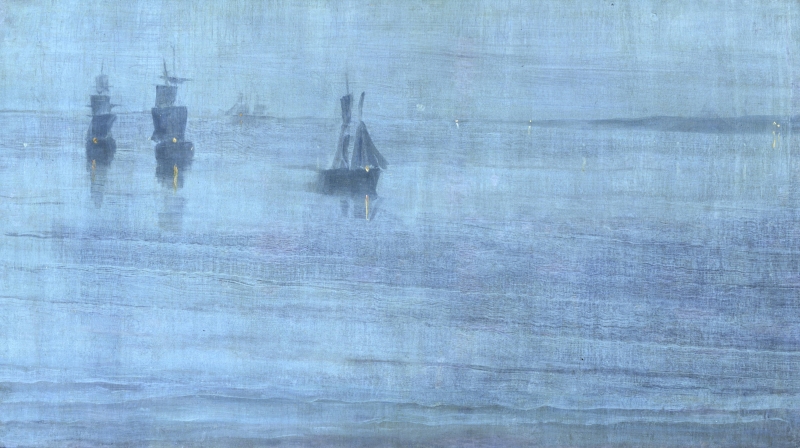Composition
On the back of the canvas, at right angles to the seascape, is a very dilapidated sketch. It shows a single draped figure with bent head, climbing some steps, which appear to be constructed of thin wooden struts, like the platforms in Pink and Grey: Three Figures [YMSM 089]. There appear to be blossoms in front of the steps.
The pose of the woman on the verso resembles that of the left-hand figure in Variations in Blue and Green [YMSM 084] and of the central figure, who is climbing steps, in Symphony in White and Red [YMSM 085]. Technically, although the authenticity of this sketch can hardly be judged in its present state, it appears to be related to the 'Six Projects', which were started in the late 1860s (see Venus [YMSM 082]).
Technique
It is painted thinly, the paint like thick cream, with long flowing strokes of the brush right across the canvas, from left to right, indicating sky and waves. The ships are painted freely and fluidly, the lights added boldly, with blobs and dashes of colour. Several extra light dots on the sea could come partly from buoys or floats, or possibly from ships that have been painted out.
Conservation History
Unknown. The painting does show faint signs of damage, as if it had been rolled or scraped in some way, and repaired. There are areas of craquelure. However, an early photograph suggests the painting has not altered much in recent years.
Last updated: 2nd December 2020 by Margaret










